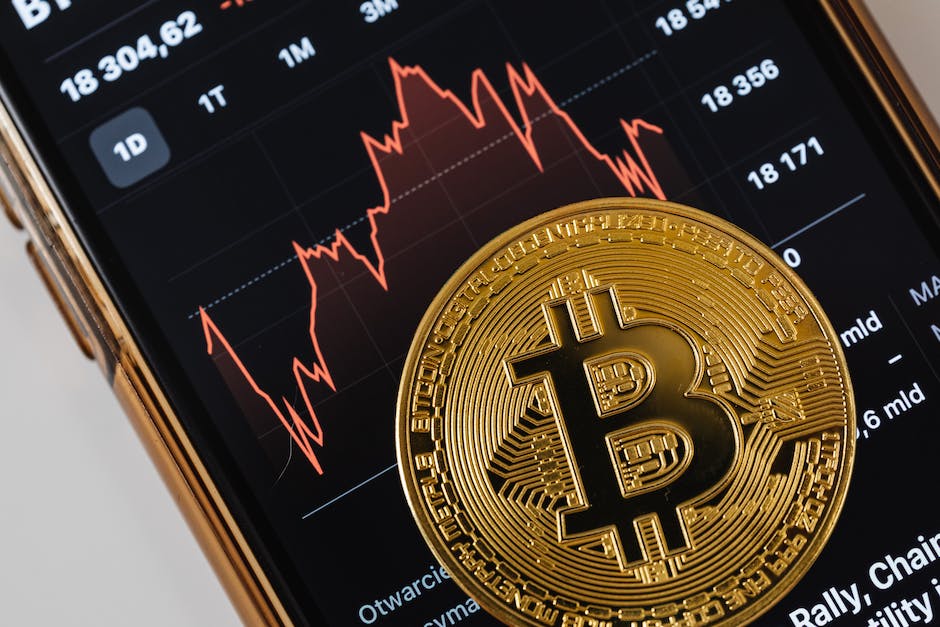
Blockchain and Real Estate Tokenization (RWA)
The world of real estate has traditionally been known for its complexity, lengthy processes, and lack of transparency. However, with the emergence of blockchain technology, these age-old challenges are being addressed through a transformative process known as tokenization. Real estate tokenization refers to the process of converting real estate assets into digital tokens on a blockchain network.
In this digital age, tokenization brings a fresh perspective to the real estate industry by introducing a more efficient and secure way of transacting, investing, and managing properties. By leveraging blockchain technology, tokenization offers numerous advantages, such as increased liquidity, fractional ownership, and greater accessibility to investors of all sizes.
Through the process of tokenization, real estate assets are divided into individual digital tokens, each backed by a share of the property’s value. These tokens are then recorded and stored on the blockchain, creating a transparent and immutable ledger of ownership. This enables fractional ownership, allowing investors to own a fraction of a property rather than having to commit to purchasing an entire unit.
The introduction of real estate tokenization not only revolutionizes the investment landscape by opening up opportunities to a broader range of investors, including individual investors, but also provides liquidity to traditionally illiquid assets like real estate. By representing ownership through tokens, trading and transferring ownership becomes considerably more straightforward, reducing the time and costs associated with traditional real estate transactions.
Moreover, real estate tokenization can unlock access to global markets, making it easier for investors to diversify their portfolios and capture growth opportunities in different regions. Through blockchain technology, real estate assets can be digitized and seamlessly offered to a global pool of investors, encouraging cross-border investment and expanding the potential market for property owners.
Furthermore, this digital representation of real estate assets introduces a high level of transparency, which has traditionally been a major challenge for the industry. Smart contracts, embedded in the blockchain, enable automated execution of terms and conditions, eliminating the need for intermediaries and reducing the risk of fraudulent activities. This increased transparency fosters trust among participants and promotes more efficient and secure transactions.
As real estate tokenization gains traction, it is poised to reshape the way we think about property ownership, investment, and management. This innovative approach has the potential to democratize real estate, making it accessible to a wider range of investors while maximizing liquidity and efficiency. The introduction of blockchain technology and smart contracts in the real estate industry is a notable step towards creating a more transparent, inclusive, and streamlined ecosystem for all stakeholders involved.
Understanding the concept of tokenization in the context of real estate (What is Real Estate Tokenization and How Does it Work?)

Tokenization in the context of real estate refers to the process of converting the rights to an asset, such as a property, into digital tokens on a blockchain. These tokens represent ownership shares or fractions of the asset and can be bought, sold, and traded much like stocks or cryptocurrencies. Real Estate Tokenization (RWA) has gained significant attention and traction in recent years due to the potential advantages it offers for both investors and property owners.
So, how does real estate tokenization actually work? It starts with a property owner or real estate developer deciding to tokenize a property. The property is then assessed, valued, and divided into shares, which are represented by digital tokens. These tokens are created and recorded on a blockchain, providing an immutable and transparent ledger of ownership.
Investors, on the other hand, can purchase these tokens, which represent a portion of the underlying property’s value. These tokens often come with certain rights and benefits, such as rental income distribution or a share of any profit generated by the property. By investing in tokens, individuals gain exposure to the real estate market without the need for significant capital or the complexities of traditional property ownership.
Real estate tokenization offers several benefits. Firstly, it provides fractional ownership, allowing individuals to invest in high-value properties that would otherwise be out of reach. This opens up opportunities for diversification and allows investors to allocate their funds across a range of properties, reducing risks.
Additionally, tokenization provides liquidity and flexibility. Unlike traditional real estate investments that tie up capital for long periods, tokens can be easily bought or sold on secondary markets, providing investors with the ability to access their investment whenever needed. Moreover, tokenization reduces barriers to entry, as it can enable smaller investors to participate in real estate projects that were previously limited to institutional investors.
From the perspective of property owners, tokenization creates new avenues for fundraising. By selling fractional ownership through tokens, developers can attract a larger pool of investors and potentially raise funds more efficiently compared to traditional financing methods. This can be particularly beneficial for smaller developers or projects that may struggle to secure financing from traditional sources.
In conclusion, real estate tokenization is revolutionizing the real estate industry by introducing fractional ownership, liquidity, and accessibility. By tokenizing properties, investors can gain exposure to the real estate market more easily while property owners can tap into a broader pool of potential investors. The future of real estate investing is being reshaped by blockchain technology, and real estate tokenization is at the forefront of this digital transformation.
Exploring the benefits of real estate tokenization for investors and property owners (Advantages of Real Estate Tokenization: Uncovering New Opportunities)

Blockchain technology has taken the global financial industry by storm, revolutionizing various sectors. One such industry that stands to benefit greatly from this technology is the real estate market. Real estate tokenization, also known as Real World Asset (RWA) tokenization, is rapidly emerging as a game-changer in the world of property ownership and investment.
One of the key advantages of real estate tokenization is the potential for increased liquidity. Traditionally, investing in real estate has been quite illiquid, with large sums of capital tied up in physical properties. However, through the use of blockchain technology, real estate assets can be tokenized and divided into smaller fractions. These tokens represent ownership shares in the property, making it easier for investors to buy and sell their holdings. This increased liquidity opens up a whole new world of opportunities for investors, as they can now trade real estate assets more easily and quickly.
Real estate tokenization also allows for fractional ownership, enabling smaller investors to gain access to high-value properties that were previously out of their reach. By owning fractional shares of a property, even investors with limited capital can diversify their portfolios and invest in multiple properties across different locations. This democratization of real estate investment allows individuals from all walks of life to participate in the lucrative cash flow and potential profits associated with real estate.
Another advantage of real estate tokenization is the increased transparency and security it offers. Blockchain technology provides a decentralized and tamper-proof ledger where every transaction is recorded. This transparency ensures that property ownership and transactions are easily traceable and verifiable, reducing the risk of fraud and enhancing trust in the market. Additionally, the use of smart contracts on the blockchain automates processes, eliminating the need for intermediaries and reducing transaction costs.
Real estate tokenization also has the potential to unlock new avenues for fundraising and property development. Property owners can tokenize their assets and offer them to a wider pool of investors through Security Token Offerings (STOs). This opens up the possibility of attracting international investors, increasing the pool of available funds for real estate projects. Moreover, tokenization allows for crowdfunding, where individuals can invest small amounts in various properties, promoting community engagement and participation in property development.
In conclusion, real estate tokenization offers numerous advantages for both investors and property owners. Increased liquidity, fractional ownership, enhanced transparency, and new fundraising opportunities are just a few of the benefits that this innovative technology brings to the real estate market. As blockchain adoption continues to grow, the potential for real estate tokenization to transform the industry and create new opportunities for investors is immense.
Examining the challenges and potential risks associated with blockchain in real estate (Potential Risks and Challenges of Real Estate Tokenization)

As with any emerging technology, blockchain integration in real estate comes with its fair share of challenges and potential risks. While the concept of tokenizing real estate assets can revolutionize the industry, it is crucial to carefully examine and address these concerns to ensure a smooth and successful transition.
1. Regulatory hurdles: One of the primary challenges in real estate tokenization is navigating through the existing regulatory framework. Different jurisdictions have varying regulations regarding property ownership, securities, and investment laws. It becomes essential to work closely with legal experts to ensure compliance with the regulatory requirements of the specific market where the tokenized assets are being offered. Failure to do so can lead to potential legal repercussions and hinder wider adoption of blockchain technology in the real estate sector.
2. Security risks: Blockchain technology is renowned for its robust security features. However, it is not completely immune to risks. Like any digital platform, blockchain can face issues such as hacking, data breaches, or smart contract vulnerabilities. Proper security measures, including implementing multi-factor authentication, encryption, and regular audits, are essential to mitigate these risks. Moreover, educating all stakeholders involved in real estate tokenization about cybersecurity best practices is critical to safeguarding the tokenized assets and protecting investors’ interests.
3. Lack of standardization: Real estate tokenization is still in its early stages, and there is a lack of industry-wide standards and best practices. This can create challenges when it comes to interoperability, liquidity, and valuation of tokenized assets. It is essential for industry associations, regulators, and technology providers to collaborate and establish common standards to ensure seamless integration and widespread adoption. Standardization efforts can help build trust and credibility in the tokenized real estate market, attracting more investors and fostering innovation.
4. Market acceptance: Despite the potential benefits, some traditional players and investors might still be hesitant to embrace real estate tokenization due to its unfamiliarity and perceived risks. Overcoming this challenge requires extensive education and awareness campaigns to demonstrate the advantages of tokenization, such as increased liquidity, fractional ownership, and overall transparency. Building trust and credibility through successful use cases and showcasing how blockchain can streamline transactions and reduce costs can gradually lead to wider market acceptance.
5. Scalability: Real estate tokenization involves dealing with large and complex assets. As blockchain technology still faces scalability issues, ensuring that the underlying infrastructure can handle the vast amounts of data and transactions associated with tokenized real estate is crucial. Solutions such as layer-two protocols or sidechains need to be explored to achieve scalability while maintaining the security and decentralization aspects of blockchain technology.
Conclusion:
While real estate tokenization presents numerous opportunities, it is essential to acknowledge and address the challenges and potential risks associated with integrating blockchain into the industry. Regulatory compliance, security measures, standardization efforts, market acceptance, and scalability are among the key areas that must be carefully navigated to ensure successful implementation. By overcoming these challenges, real estate tokenization can unlock a new era of efficiency, liquidity, and transparency within the industry.
Case studies and success stories of real estate tokenization projects (Real-Life Examples of Successful Real Estate Tokenization)

In recent years, the intersection of blockchain technology and the real estate industry has opened up new opportunities for investors and property owners. One significant development within this space is the concept of real estate tokenization. By utilizing blockchain’s secure and transparent infrastructure, real estate assets can be converted into digital tokens, enabling fractional ownership and easy transferability.
Real-life examples of successful real estate tokenization projects serve as strong evidence of the potential benefits this technology brings to the industry. Let’s explore a few noteworthy case studies and success stories below:
1. St. Regis Aspen Resort: In 2018, the St. Regis Aspen Resort, a luxury hotel located in Colorado, became one of the first properties to be tokenized. The project aimed to raise funds through the sale of Security Token Offerings (STOs), providing investors with fractional ownership of the hotel. This approach allowed investors to benefit from the property’s revenue streams while providing increased liquidity to the real estate market.
2. The Shard: In 2019, London’s iconic skyscraper, The Shard, announced plans to launch a tokenized real estate project. The initiative aimed to offer investors the opportunity to purchase tokens backed by The Shard’s prime commercial real estate value. By tokenizing such a prominent property, the project aimed to democratize access to real estate investments that were previously inaccessible to the general public.
3. Blockchain-based REITs: Real Estate Investment Trusts (REITs) have also ventured into blockchain-based tokenization. In 2020, Elevated Returns, a real estate asset management company, used tokenization to launch one of the world’s first tokenized REITs. The project involved the tokenization of a luxury resort in Thailand, enabling investors to gain exposure to the property’s potential returns while ensuring transparent ownership and simplified transferability.
These case studies highlight the potential for real estate tokenization to revolutionize the industry by breaking down traditional barriers and creating new investment opportunities. By utilizing blockchain technology, these projects enable fractional ownership, increased liquidity, and improved transparency, benefits that were previously reserved for large-scale investors only.
Tokenization has the potential to unlock liquidity in traditionally illiquid assets like real estate, making it an attractive prospect for both investors and property owners. As more projects successfully tokenize real estate assets, the industry will likely witness a transformative shift in how properties are valued, bought, and sold.
Discussing the role of smart contracts in real estate tokenization (The Power of Smart Contracts in Real Estate Tokenization)

Blockchain and Real Estate Tokenization (RWA)
The Power of Smart Contracts in Real Estate Tokenization
One of the revolutionary aspects of integrating blockchain technology into the real estate industry is the utilization of smart contracts. Smart contracts are self-executing contracts with predefined rules and conditions encoded into the blockchain network. These contracts automatically execute actions when specific conditions are met, without the need for intermediaries or third-party verification.
When it comes to real estate tokenization, smart contracts play a crucial role in streamlining and automating the various processes involved. By digitizing and representing real estate assets as tokens on the blockchain, ownership rights and investment opportunities can be easily transferred and managed, cutting down on manual paperwork and reducing transactional costs.
One of the key advantages of smart contracts is their ability to enforce transparency and immutability. Every single transaction and agreement recorded on the blockchain is permanent and cannot be altered or tampered with. This not only enhances the security of real estate transactions but also increases trust among all stakeholders involved.
Moreover, smart contracts provide an efficient and secure way to automate property management tasks such as rent collection, maintenance requests, and lease renewals. For example, by using smart contracts, property owners can set up automatic rent payments, ensuring timely transactions without the need for reminders or manual intervention. Similarly, tenants can submit maintenance requests that are automatically addressed based on predefined criteria, eliminating any delays or potential dispute.
Additionally, smart contracts enable fractional ownership of real estate assets, opening up new investment opportunities for individuals who may not have the means to purchase an entire property. By dividing real estate assets into tokens, investors can buy and sell fractions of properties, creating a liquid market for real estate investments. These fractional ownerships can be easily managed and transferred using smart contracts, providing a seamless experience for both buyers and sellers.
In conclusion, the power of smart contracts in real estate tokenization cannot be overstated. By leveraging blockchain technology, these self-executing contracts streamline and automate various processes, enhancing transparency, security, and efficiency in real estate transactions. As the real estate industry continues to embrace blockchain, smart contracts will undoubtedly play a pivotal role in reshaping the way properties are sold, managed, and invested in, making real estate more accessible and inclusive for a wider range of investors.
Analyzing the impact of blockchain and tokenization on liquidity in the real estate market (Enhancing Liquidity: How Blockchain is Transforming Real Estate Investments)

Real estate has always been considered a lucrative investment option, offering long-term stability and potential for high returns. However, one of the major drawbacks of real estate investment has been its illiquid nature. Buyers and sellers often face challenges in terms of finding suitable opportunities and completing transactions seamlessly. This lack of liquidity can restrict access to the real estate market, especially for smaller investors and those looking for more flexible investment options.
Enter blockchain technology and the concept of tokenization, which have the potential to revolutionize the real estate market by enhancing liquidity. Tokenization refers to the process of representing real-world assets, such as properties, as digital tokens on a blockchain network. These tokens can be bought, sold, and traded, just like any other cryptocurrency, providing a level of liquidity previously unavailable in the real estate industry.
By tokenizing real estate assets, investors can gain access to fractional ownership, enabling them to invest in a portion of a property rather than having to purchase the entire asset. This not only reduces the financial barriers to entry but also increases the pool of potential investors. Consequently, even smaller investors can diversify their real estate portfolios, spreading their risk across multiple properties.
Blockchain technology also brings transparency and security to real estate transactions. Each transaction recorded on the blockchain is immutable and visible to all participants, ensuring that the ownership records are accurate and tamper-proof. This eliminates the need for intermediaries, such as lawyers or brokers, reducing transaction costs and streamlining the buying and selling process.
Furthermore, the inherent trust and smart contract capabilities of blockchain technology minimize the risk of fraud and dispute. Smart contracts are self-executing contracts with the terms of the agreement directly written into code. These contracts automatically enforce and carry out the terms, ensuring that transactions are completed only when all predefined conditions are met. This adds an additional layer of security and reduces the need for extensive legal documentation and intermediaries.
The increased liquidity offered by blockchain and real estate tokenization also opens up new investment opportunities for individuals who may not have considered real estate as a viable option before. Moreover, it allows for greater diversification in investment portfolios, with investors being able to choose from a broader range of properties and locations.
In conclusion, blockchain technology and tokenization have the potential to transform the real estate market by enhancing liquidity, reducing transaction costs, and increasing accessibility for investors of all sizes. The combination of fractional ownership, transparency, security, and smart contract capabilities unlocks a new era of opportunities and flexibility in real estate investments. As adoption and integration of blockchain in the real estate sector continue to grow, the possibilities for investors are boundless, transforming real estate into a more inclusive and liquid asset class.
The role of regulatory frameworks and legal considerations in real estate tokenization (Navigating the Legal Landscape: Regulatory Challenges in Real Estate Tokenization)

As real estate tokenization gains traction in the market, it is imperative to address the role of regulatory frameworks and legal considerations in this emerging field. Navigating the legal landscape is a crucial aspect of enabling successful and compliant real estate tokenization projects.
One of the primary challenges in real estate tokenization is ensuring compliance with existing financial regulations. Tokenizing real estate assets involves the issuance and trading of digital securities, which fall under the purview of securities regulators. These regulators have the responsibility of protecting investors, mitigating fraud risks, and maintaining market integrity.
The legal considerations for real estate tokenization vary across jurisdictions, as different countries have established their own regulatory frameworks. It is vital for businesses venturing into the tokenization space to understand and comply with the specific regulations of the countries they operate in.
In addition to securities regulations, real estate tokenization also requires compliance with existing property laws. Tokenization involves legally representing fractional ownership of real estate assets, and it is crucial to ensure that these representations align with the legal frameworks governing property ownership and transfers.
Another significant legal consideration in real estate tokenization is investor protection. To protect investors, regulatory frameworks often require the implementation of certain disclosure and transparency requirements. Real estate tokenization platforms need to provide comprehensive information about the underlying asset, such as property valuation, rental income, and associated risks, ensuring that investors can make informed decisions.
Furthermore, regulatory compliance in real estate tokenization also involves Know Your Customer (KYC) and Anti-Money Laundering (AML) requirements. These regulations mandate robust identity verification procedures and the monitoring of token transfers to prevent illegal activities, such as money laundering and terrorist financing.
The legal landscape surrounding real estate tokenization is still evolving, and industry participants must closely monitor regulatory developments. Governments are starting to recognize the potential of blockchain technology and its impact on the real estate sector, leading to the emergence of tailored legislation and frameworks. Engaging with regulators and actively participating in shaping industry regulations will be essential for businesses to navigate the legal complexities of real estate tokenization efficiently.
In conclusion, regulatory frameworks and legal considerations play a crucial role in real estate tokenization. Compliance with financial regulations, property laws, investor protection measures, and KYC/AML requirements is essential to ensure successful and legally sound real estate tokenization projects. Staying updated on regulatory developments, engaging with regulators, and seeking legal counsel can help businesses navigate the legal landscape and seize the transformative potential of blockchain technology in the real estate sector.
Exploring the potential future developments and trends in blockchain and real estate tokenization (The Future of Real Estate: Emerging Trends in Blockchain and Tokenization)

In recent years, the integration of blockchain technology in various industries has gained significant attention. One such sector that has witnessed potential disruption through blockchain implementation is real estate. With its ability to increase transparency, security, and efficiency in transactions, blockchain has the potential to revolutionize the way real estate assets are bought, sold, and managed.
One of the emerging trends in this space is real estate tokenization. Tokenization refers to the process of representing real-world assets, such as properties, on a blockchain network using digital tokens. These tokens can then be bought, sold, and traded, allowing for fractional ownership of real estate assets. This opens up a whole new world of opportunities for investors, particularly those who may not have the financial means to invest in entire properties.
By tokenizing real estate assets, it becomes possible to eliminate intermediaries such as agents, lawyers, and brokers, reducing transaction costs, and increasing liquidity. Additionally, blockchain-based smart contracts can streamline the entire process, ensuring that all parties involved adhere to predefined terms and conditions. This reduces the potential for fraud and disputes, enhancing trust and security in real estate transactions.
Moreover, tokenization enables greater accessibility to global investors. With traditional real estate investment typically limited to local buyers, tokenized assets can be easily traded across borders, allowing for increased diversification and investment opportunities.
Looking to the future, the potential developments in blockchain and real estate tokenization are promising. As the technology matures and regulatory frameworks catch up, we can expect to see more widespread adoption of blockchain in the real estate industry. The integration of artificial intelligence and Internet of Things (IoT) devices could further enhance the value proposition of tokenized real estate, by enabling real-time data monitoring and analysis for better property management.
However, it’s important to acknowledge that challenges exist. Regulatory hurdles, lack of standardization, and resistance from traditional players in the industry may slow down the pace of adoption. Collaboration between industry stakeholders, governments, and technology providers will be crucial to address these challenges and unlock the full potential of blockchain in real estate.
In conclusion, the future of real estate lies in the intersection of blockchain technology and tokenization. By leveraging the power of blockchain, we are opening up a world of possibilities for investors, increasing transparency and efficiency in real estate transactions. While there are challenges to overcome, the potential benefits in terms of accessibility, security, and liquidity make this an exciting space to watch in the coming years.

